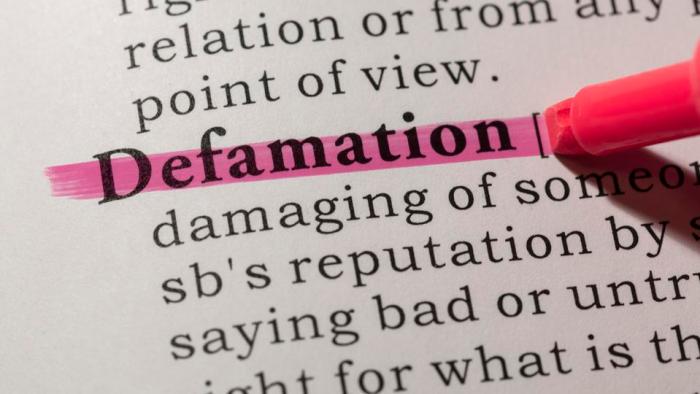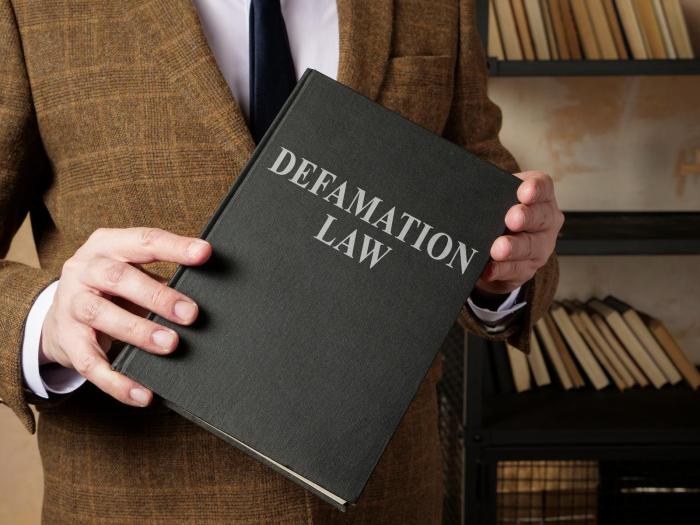Suing a doctor for defamation of character is a serious matter with significant legal and ethical implications. Understanding the legal basis, common defenses, potential damages, and ethical obligations involved is crucial for both doctors and individuals considering legal action.
This article delves into the intricacies of defamation claims against doctors, exploring the legal elements that must be proven, the defenses commonly employed, and the ethical considerations that guide doctors’ conduct when facing such claims.
1. Legal Basis for Defamation Claims Against Doctors
Defamation is a legal wrong that occurs when someone publishes a false statement about another person that harms their reputation. In the context of doctors, defamation can occur when a doctor makes a false statement about a patient or colleague that damages their professional standing or reputation.
To establish a defamation claim, the plaintiff must prove the following elements:
- The defendant made a false statement about the plaintiff.
- The statement was published to a third party.
- The statement caused the plaintiff harm.
- The defendant was at fault for making the statement.
2. Common Defenses to Defamation Claims Against Doctors

Doctors have several common defenses to defamation claims, including:
- Truth: The statement is true, and therefore not defamatory.
- Privilege: The statement was made in a privileged context, such as a peer review or disciplinary proceeding.
- Consent: The plaintiff consented to the publication of the statement.
- Fair comment: The statement was a fair comment on a matter of public interest.
3. Damages in Defamation Cases Against Doctors
Damages in defamation cases can include:
- Compensatory damages: These damages are designed to compensate the plaintiff for the harm caused by the defamation, such as lost income or reputation.
- Punitive damages: These damages are designed to punish the defendant for their conduct and deter others from engaging in similar conduct.
The amount of damages awarded in a defamation case is determined by the facts of the case and the severity of the harm caused by the defamation.
4. Ethical Considerations for Doctors Facing Defamation Claims

Doctors have an ethical obligation to maintain the confidentiality of their patients’ medical information. This obligation can conflict with the need to defend themselves against defamation claims, which may require them to disclose confidential information.
Doctors who are facing defamation claims should carefully consider the ethical implications of their actions and seek legal advice to ensure that they are not violating their ethical obligations.
5. Case Studies of Defamation Claims Against Doctors: Suing A Doctor For Defamation Of Character
There have been a number of notable defamation claims against doctors in recent years. One example is the case of Doe v. Smith, in which a patient sued a doctor for defamation after the doctor made a false statement about the patient’s medical history to a third party.
In Doe v. Smith, the court found that the doctor’s statement was defamatory and awarded the patient damages.
6. Strategies for Preventing Defamation Claims Against Doctors

Doctors can take a number of steps to minimize the risk of defamation claims, including:
- Be truthful and accurate in your statements.
- Avoid making statements about patients or colleagues that are not based on facts.
- Be careful about what you post on social media.
- Obtain consent before releasing any patient information.
- Document your interactions with patients and colleagues.
By following these strategies, doctors can help to protect themselves from defamation claims.
FAQ Corner
What is the legal definition of defamation?
Defamation is a false statement that harms someone’s reputation by exposing them to hatred, contempt, or ridicule.
What are the common defenses to defamation claims against doctors?
Common defenses include truth, privilege, fair comment, and consent.
What types of damages can be awarded in defamation cases?
Damages may include compensatory, punitive, and nominal damages.